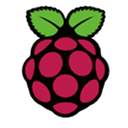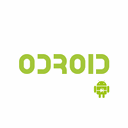Top PandaBoard Alternatives for Your Next Project
The PandaBoard, launched in 2010, carved out a niche as a low-power, low-cost single-board computer development platform, largely supported by its vibrant community. Based on the Texas Instruments OMAP4430 SoC, it offered an accessible entry point into embedded development. However, as technology evolves, so do the options available. If you're looking for a powerful and versatile PandaBoard alternative for your next embedded project, you've come to the right place. We'll explore a range of modern single-board computers that offer enhanced performance, expanded features, and continued community support.
Best PandaBoard Alternatives
Whether you're building a robot, a smart home device, or a media center, these PandaBoard alternatives offer diverse capabilities to meet your specific needs. From open-source marvels to commercial powerhouses, let's dive into the best options available today.

Raspberry Pi
The Raspberry Pi is perhaps the most well-known single-board computer and an excellent PandaBoard alternative. It's a low-cost, capable little PC that runs on Commercial and Linux platforms, suitable for many tasks a desktop PC handles, including games, spreadsheets, and word processing. Its strong community support, ARM architecture, and focus on education make it incredibly versatile for both hobbyists and professionals.

Orange Pi
Orange Pi stands out as a powerful open-source PandaBoard alternative. It's a single-board computer that can run Android 4.4, Ubuntu, Debian, and Raspberry Pi images, utilizing the AllWinner H3 SoC with 1GB DDR3 SDRAM. Its Free and Open Source nature, support for Linux and Android, and educational focus make it a compelling choice for a wide range of projects.

OLinuXino
For those prioritizing open-source hardware and software, OLinuXino is a fantastic PandaBoard alternative. It's a low-cost, Linux industrial-grade single-board computer with GPIOs, making it ideal for prototyping. Running on Free, Open Source, Linux, and Android platforms, OLinuXino offers robust capabilities for industrial and hobbyist applications alike.

BeagleBoard
The BeagleBoard, supported by the BeagleBoard.org Foundation, is a strong PandaBoard alternative with a focus on education and promotion of open-source software. This Commercial Linux-based single-board computer is well-regarded for its operating system flexibility and robust hardware, making it a favorite for advanced development and learning.

Minnow Board
Intel's entry into the hacker space, the Minnow Board, offers a completely open-source single-board computer experience, making it a compelling PandaBoard alternative. It supports Free and Open Source Windows, Linux, and BSD platforms, providing extensive operating system flexibility for developers and enthusiasts.

UDOO
UDOO stands out as a unique PandaBoard alternative, integrating a single-board computer with an Arduino 2 compatible microcontroller. Designed for computer science education, makers, and DIY enthusiasts, UDOO operates on Free, Open Source, Linux, and Android platforms, making it highly versatile for projects requiring both computing power and physical interaction.

Banana Pi
The Banana Pi is a Chinese-made single-board computer that serves as a robust PandaBoard alternative. It can run Android, Ubuntu, Debian, and even Raspbian. Supporting Commercial Linux, Android, and BSD platforms, its kid-friendly nature and versatile operating system compatibility make it suitable for a broad range of educational and personal projects.

Cubieboard
Originating from Shenzhen, China, Cubieboard is a single-board computer that functions as a solid PandaBoard alternative, particularly known for its compact design. It supports Commercial Linux and Android platforms, offering a powerful yet accessible solution for embedded systems and general computing tasks.

Odroid
The Odroid series, developed by Hardkernel Co., Ltd., provides a diverse range of single-board computers and tablet computers, making them excellent PandaBoard alternatives. Running on Commercial Linux and Android platforms, Odroid boards are well-regarded for their performance and open-source hardware support, catering to advanced users and developers.

Radxa Rock
For those seeking enhanced processing power, the Radxa Rock steps up as a compelling PandaBoard alternative. Featuring a quad-core 1.6 GHz processor, built-in Bluetooth, WiFi with antenna, 1 GB of RAM, and 4 GB of onboard storage, it offers a robust solution. It supports Commercial Linux and Android platforms, making it ideal for more demanding applications.
The world of single-board computers has expanded significantly since the PandaBoard's debut. Each of these alternatives brings its own strengths to the table, from robust open-source communities to powerful specifications. Consider your project's specific requirements for processing power, operating system compatibility, I/O needs, and budget to find the perfect PandaBoard alternative that will empower your next innovation.